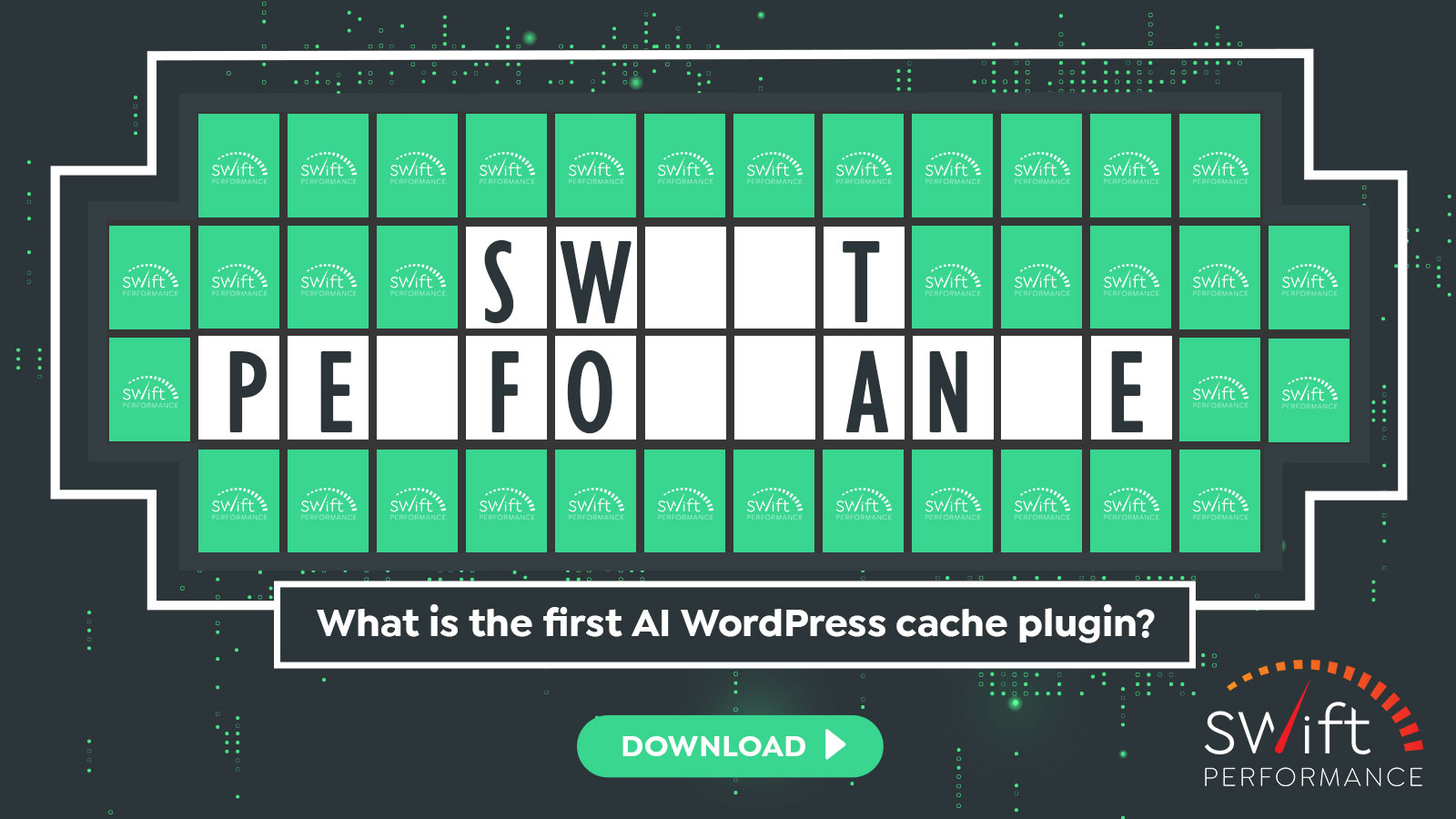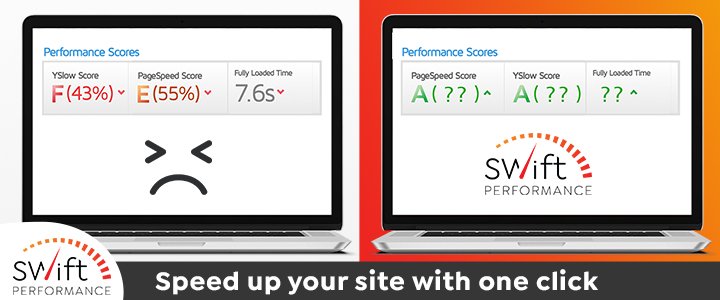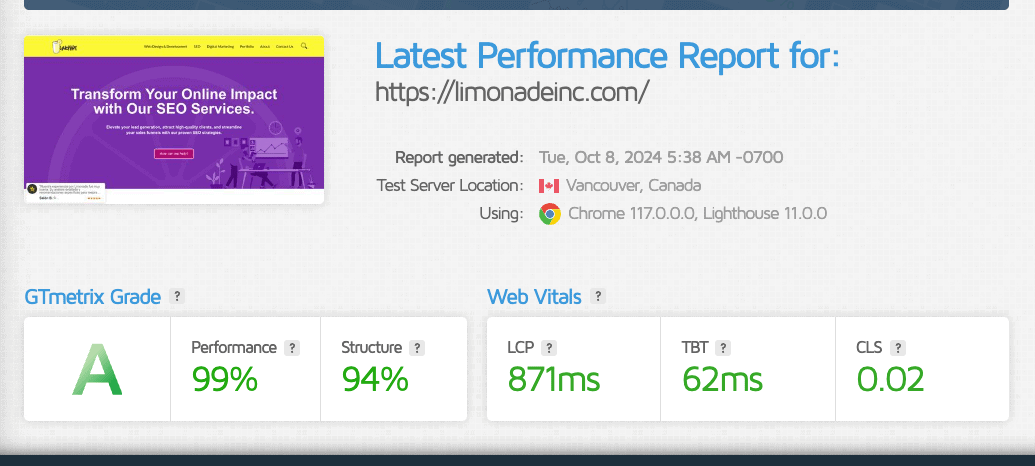From WP Rocket to Swift Performance: My Journey to a Faster Website with AI Assistance
Why I Decided to Move On from WP Rocket After a Decade
Site speed and performance optimization have always been essential for businesses, but today, in a digital-first world, they are non-negotiable. For over a decade, WP Rocket was my go-to solution for improving website load times and running my clients' websites smoothly. It had a reputation for being one of the best caching plugins, and it certainly served its purpose for years.
The Challenges of Sticking with WP Rocket: A Long-Time User's Perspective
However, just as technology evolves, so do our needs. After years of using WP Rocket, I faced increasing challenges that made me rethink its place in my toolbox. Rising costs, technical issues that wasted valuable time, and the complexity of fine-tuning settings made it harder to justify sticking with the plugin. Despite its long-standing reliability, I knew it was time for a change.
Swift Performance: The AI-Driven Solution I Didn’t Know I Needed
That’s when I discovered Swift Performance. Not only did it offer a competitive alternative, but its AI-powered optimization caught my attention as a game-changer in performance management. Swift Performance promised to deliver the same — if not better — results without the hassles I was facing, and it did so with a simple plug-and-play approach.
From Frustration to Efficiency: My Transition to Swift Performance
In this post, I’ll explain my transition from WP Rocket to Swift Performance and how the move has positively impacted my websites and those of my clients.
Why I Chose to Move Away from WP Rocket
Pricing Concerns: WP Rocket’s Rising Costs
One of the primary reasons I decided to part ways with WP Rocket was the steep increase in pricing over the last two years. When I first started using it over a decade ago, it offered solid value for its features and a reasonable price. However, recent price hikes have nearly doubled what I used to pay, making it far less cost-effective for my business.
For many small business owners and web developers, the cost is a significant factor in choosing the right tools. WP Rocket's frequent price increases have placed it in a more premium category, which can be difficult to justify, especially when the added features don’t necessarily bring proportionate value.
Technical Frustrations: Unbillable Hours and Client Confusion
Beyond the pricing issues, WP Rocket often caused technical problems that burdened my team. We spent countless unbillable hours troubleshooting matters that arose from using the plugin. The complexity of the settings meant that optimizing for performance often led to site-breaking changes that clients didn’t understand. In many cases, we had to disable the plugin entirely.
For example, we encountered several instances where clients saw their websites break after minor updates or optimizations with WP Rocket. While the plugin was intended to boost performance, the trade-off in stability was not what our clients appreciated, and it became challenging to explain the long-term value of website optimization when it was causing immediate problems.
Elastic vs. Inelastic Pricing: Why Swift Performance Wins
In economic terms, WP Rocket's pricing falls into the category of elastic pricing, meaning that customers are sensitive to price changes because it's considered a "nice to have" rather than a necessity. When the price increases significantly, users like me question whether the value justifies the cost, and it becomes easier to consider alternatives.
Swift Performance, on the other hand, hits the sweet spot between price and performance. It provides a robust set of features, and with the added AI-powered optimization, it simplifies the entire process. At its current pricing, Swift Performance offers a better balance of affordability and functionality, making it a more appealing choice, especially for businesses managing multiple client websites.
Swift Performance isn’t just an alternative; it's a more innovative investment that aligns with the value I want to deliver to my clients without the financial strain or technical headaches I experienced with WP Rocket.
Discovering Swift Performance
Research and Recommendation
After years of relying on WP Rocket, I began searching for alternatives that could offer the same—if not better—performance without the complications and rising costs. That's when I came across Swift Performance. It was highly recommended on platforms like BloggerPilot and even came up as a top choice when I asked ChatGPT for a replacement similar to WP Rocket. These endorsements, combined with its impressive feature set, led me to try it.
First Impressions: A True Plug-and-Play Solution
From the moment I installed Swift Performance, I could tell the experience would be different. The installation process was seamless and straightforward. Unlike WP Rocket, which took years of understanding and tweaking to get the best results, Swift Performance worked out of the box. The default settings delivered site speed improvements comparable to what I had spent years fine-tuning with WP Rocket. It was a relief to see these results without spending hours adjusting configurations.
Ease of Transition
Transitioning to Swift Performance was refreshingly easy compared to the steep learning curve I faced with WP Rocket. I didn’t have to second-guess my setup or troubleshoot compatibility issues. What used to require countless hours of adjustments and testing with WP Rocket now took minutes with Swift. This ease of use was a game-changer for my team and me, freeing up time to focus on other aspects of our clients' websites without worrying about performance bottlenecks.
Swift Performance AI vs. WP Rocket
AI-Powered Optimization
One of the standout features of Swift Performance is its AI-powered optimization. Unlike WP Rocket, which requires manual configuration and constant tweaking, Swift Performance AI automatically adjusts settings based on the specific needs of your website. This means the plugin is always working in the background, making real-time adjustments to optimize performance, whereas with WP Rocket, I had to spend hours experimenting with settings to achieve the best results.
Performance Gains
The comparison between Swift Performance AI and WP Rocket is quite revealing. With Swift Performance AI, I saw higher Google PageSpeed scores and noticeably better Core Web Vitals optimization. In today’s SEO landscape, optimizing for Core Web Vitals is crucial, and Swift Performance’s AI targets these factors directly. WP Rocket required a lot more manual effort to address these same metrics, and even then, the results didn’t always match what Swift Performance delivered right out of the box.
AI-Assisted Settings: Reducing Manual Work
With Swift Performance AI, the need for constant manual adjustments is eliminated. The AI continuously optimizes the website based on traffic, content changes, and other factors, whereas WP Rocket's static settings need regular fine-tuning to maintain the same performance levels. This real-time optimization feature has saved my team countless hours that would have been spent manually tweaking settings.
Usability: Time Savings for My Team
Swift Performance's AI-driven approach has dramatically simplified my workflow. Instead of the trial-and-error process, we had with WP Rocket, Swift Performance does the heavy lifting for us. This automation allows my team to focus on other tasks rather than constantly troubleshooting performance issues. The result is faster websites and a more efficient use of time.
Real-World Results After Switching
Performance Metrics: Before and After
The results speak for themselves. After switching from WP Rocket to Swift Performance, I ran multiple performance tests and saw significant improvements in site speed, Core Web Vitals, and overall load times. Despite the default settings, Swift Performance delivered results that were on par with—if not better than—the heavily customized WP Rocket setup I had previously relied on. When I activated the AI optimization, the performance improved even further, particularly regarding page load speed and responsiveness.
Client Impact: Simplified Explanations and Fewer Issues
The impact on my clients' websites has been just as impressive. With Swift Performance, I’ve had far fewer troubleshooting issues, resulting in less time spent on optimizations and more time enhancing client experiences. Clients no longer need to worry about their websites breaking after optimizations or updates, a common occurrence with WP Rocket. The seamless performance improvements have also made it easier to explain the value of website optimization to clients—they see the results without the complications.
In short, Swift Performance has simplified the optimization process for both my team and my clients. With fewer technical issues to manage and automated AI-powered settings that continuously optimize the site, it has been a win-win for everyone involved.
Feature Comparison — Swift Performance vs. WP Rocket
Standout Features of Swift Performance
As I transitioned from WP Rocket to Swift Performance, one of the first things that stood out was the range of features Swift Performance offered—many of which WP Rocket lacks or handles less efficiently.
- AI-Powered Optimization:
One game-changer is Swift Performance's AI-powered optimization. Unlike WP Rocket, which requires manual input for optimizing CSS, JS, and images, Swift intelligently configures these settings in real-time. It optimizes the website based on traffic, content changes, and other factors, ensuring your site stays fast without needing constant attention. - Caching Options:
While WP Rocket offers solid caching, Swift Performance steps it up with superior page caching, browser caching, and database optimization. These layers of caching help further reduce load times and server strain, making Swift a powerful tool, especially for high-traffic websites. - CDN Integration:
Both plugins integrate with Content Delivery Networks (CDNs), but Swift Performance integrates more smoothly, boosting global performance without requiring heavy configurations. - Image Optimization and Lazy Loading:
Much like WP Rocket, Swift Performance offers automatic image optimization and lazy loading, but it’s more streamlined and intuitive. The lazy loading feature helps improve loading times by only loading images as they are about to appear on the screen. - CSS/JS Minification:
Swift makes CSS and JS minification simple and efficient, with added AI-assisted settings that eliminate guesswork. WP Rocket also offers this feature, but Swift's AI enhancement simplifies it further. - Plugin Organizer:
A feature that WP Rocket does not offer is Swift Performance's Plugin Organizer, which allows you to disable plugins on a per-page basis. This feature reduces overhead by preventing plugins from running on pages that aren’t needed, improving load times and site performance. - GZIP Compression:
While both plugins offer GZIP compression, Swift Performance includes this feature out of the box, requiring no additional setup or configuration
| Feature | Swift Performance | WP Rocket |
|---|---|---|
| AI-Powered Optimization | Optimizes CSS, JS, and images in real-time using AI | Requires manual configuration for optimizing CSS, JS, and images |
| Caching Options | Superior page, browser, and database caching | Provides solid caching but lacks advanced layers |
| CDN Integration | Integrates smoothly with CDNs, improving global performance | Integrates with CDNs but may require more configuration |
| Image Optimization and Lazy Loading | Streamlined and intuitive implementation | Offers automatic image optimization and lazy loading |
| CSS/JS Minification | Simplifies minification with AI-assisted settings | Offers minification but requires more manual effort |
| Plugin Organizer | Allows disabling plugins on a per-page basis | Does not offer this feature |
| GZIP Compression | Includes GZIP compression by default | Provides GZIP compression but requires setup |
| Ease of Use | AI reduces the need for manual adjustments | Requires more frequent manual adjustments |
| Price | More cost-effective with advanced AI features | Pricier, with recent price increases |
| Performance | Better Core Web Vitals and Google PageSpeed scores out-of-the-box | Requires time spent on configuration and testing for similar results |
Direct Comparisons
- Ease of Use:
Swift Performance’s AI-powered approach takes the complexity out of performance optimization. Where WP Rocket requires frequent manual adjustments, Swift Performance intelligently handles optimizations, making it easier for developers and website owners to manage site speed without needing a deep technical understanding. - Price:
One of the driving factors in my switch was Swift Performance’s more affordable pricing. Even with advanced AI features, it remains a cost-effective alternative to WP Rocket, especially given the latter's recent price increases. - Performance:
Swift Performance delivers better Core Web Vitals and Google PageSpeed scores out-of-the-box, mainly due to its AI-assisted optimizations. With WP Rocket, you must spend time configuring and testing settings, while Swift gets it right with minimal manual effort.
Final Thoughts
Switching from WP Rocket to Swift Performance has been a pivotal decision for my business. The AI-powered optimization has saved me countless hours of manual configuration, and the performance gains — both in site speed and Core Web Vitals — have been impressive. The transition was seamless, and the ease of use has transformed our workflow, allowing us to spend more time on client-focused work rather than technical troubleshooting.
Recommendation
If you’re a developer or business owner looking for a cost-effective, efficient, and AI-powered alternative to WP Rocket, I strongly recommend trying Swift Performance. Whether managing a single site or multiple client websites, Swift Performance can help streamline your optimization process while delivering outstanding results.
Ready to Improve Your Website’s Performance with Swift Performance?" Subheading: Experience AI-Powered Speed and Optimization—No Hassles, Just Results
Try Swift Performance for yourself and see how effortlessly it enhances your website’s speed and performance. Have questions or want to share your experience? Drop a comment below—I’m here to help! Don’t forget to subscribe for updates on my blog series, where I share additional insights on website optimization and AI-powered tools.
"*" indicates required fields












